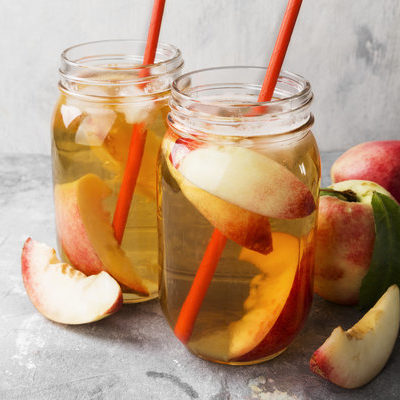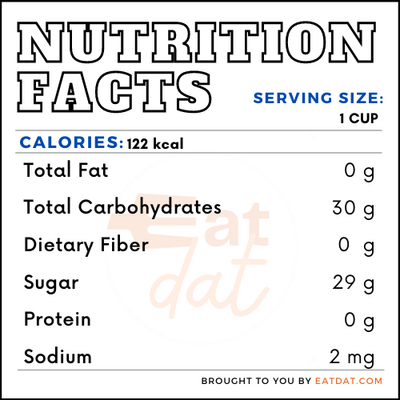
Nectarine Juice
What is Nectarine Juice?
Nectarine juice is a liquid drink that is made by pressing or extracting juice from the pulp of the nectarine fruit. Nectarine is a type of peach which does not have fuzz. The word ‘nectarine’ means as sweet as nectar. There are hundreds of varieties of nectarine grown around the world. This juice needs to be made with ripe and sweet fruits.
- This can be made fresh at home or store-bought.
- It is not as widely consumed as other juices.
Here are the top 10 juice brands around the world:
- Fresh Del Monte Produce
- Keurig Dr. Pepper
- Nestlé
- PepsiCo
- The Coca-Cola Company
- Welch’s
- Citrus World
- Hangzhou Wahaha Group
- Suntory Holdings
- Ocean Spray
Nectarine juice origin
The origin of nectarines is not known, though it is speculated that the fruit might have originated in China 2,000 years ago at the same time as peaches. Nectarines have a smooth skin as opposed to the fuzzy skin of the peach, which biologists think is the expression of a recessive allele. They were known to be grown in ancient Greece, Persia, and ancient Rome. The word nectarine was first used in England in 1616. With the colonization of the New World, the Spanish took nectarines to the Americas.
Commercial production
Nectarines are harvested and transported to the packing house immediately afterward to prevent spoilage. They are picked for ripeness and treated with heated, moist air. Then, the nectarines are pressed to extract the juice and filtered. This juice is then combined with plant cell wall degrading agents and finally pasteurized before packaging. Frequently, nectarine juice is combined with other juices.
Nutrition
One cup of squeezed nectarine juice contains:

The juice of nectarines are a good source of vitamins A and C, as well as niacin, copper, potassium, and iron. If the pulp is maintained in the juice, it is also a good source of dietary fiber. Nectarines have a moderate glycemic index and hence, are a good source of carbohydrates. This juice also provides the human body with antioxidants, as well as polyphenols. All these nutrients can benefit the heart, metabolism, blood sugar level, and digestive system.
Nectarine juice recipes
This can be used in different ways to give a sweet flavor to desserts and beverages.
FDA regulations
The FDA regulates all fruit juices, including nectarine juice. The FDA defines fruit juice as any beverage that contains any amount of juice derived from fruits. The addition of carbohydrate sweeteners is allowed for nectarine juice. Companies are required to specify the exact amount of juice present in the product. It must have at least an 11.8 percent concentration of juice.
References
Kurt Nolte, Nectarines, Yuma County Cooperative Extension https://cals.arizona.edu/fps/sites/cals.arizona.edu.fps/files/cotw/Nectarine.pdf
C. Blattný, PEACHES AND NECTARINES, Editor(s): Benjamin Caballero, Encyclopedia of Food Sciences and Nutrition (Second Edition), Academic Press, 2003, Pages 4415-4420, ISBN 9780122270550, https://doi.org/10.1016/B0-12-227055-X/00896-8.
https://www.sciencedirect.com/science/article/pii/B012227055X008968
